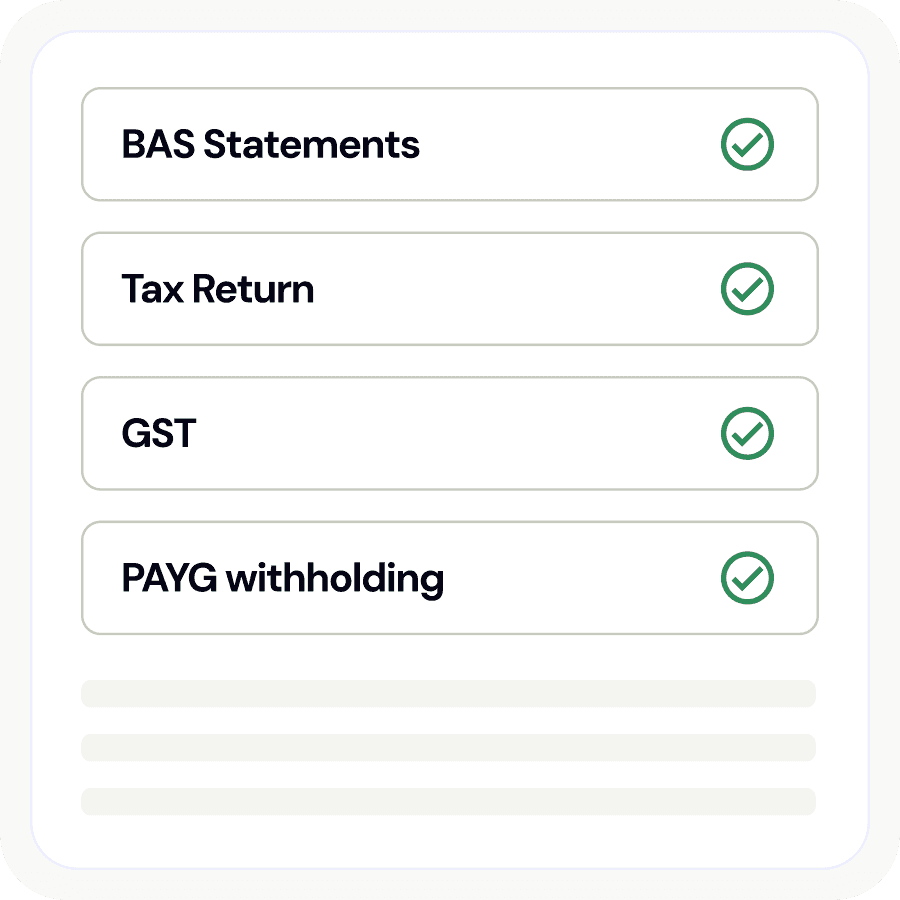Australian families looking to protect their assets and minimise their tax burden may consider putting their assetsin a family trust. This financial tool offers a range of benefits that can significantly impact a family’s financial well-being.
In this guide, we will walk you through the intricacies of family trusts in Australia, exploring their structure, tax advantages, and potential drawbacks. By the end, you’ll have a clear understanding of how family trusts can help you optimise your family’s financial strategy and whether this approach is right for you.
Table of Contents
What is a family trust, and how does it work?
A family trust is a form of agreement where one party (the trustee) holds assets for the benefit of family members. A family trust is discretionary because the trustee has the power to annually determine what and how much each beneficiary receives. Trustee power applies only to the nominated initial beneficiaries named in the trust deed and their relations.
The basic elements are:
- Trust deed: The rulebook that outlines how the trust should operate, who the beneficiaries are, and the trustee’s powers.
- Settlor: The person who establishes the trust by transferring initial assets, often a nominal sum like $10.
- Trustee: The legal owner and manager of the trust’s assets, responsible for operating the trust according to the trust deed.
- Beneficiaries: The individuals or entities who benefit from the trust.
- Appointer: The person who identifies the trustee.
- Length of operation: Usually 80 years (except South Australia – unlimited)
The primary purposes of a family trust include tax planning, asset protection, and estate planning. Unlike fixed trusts, discretionary family trusts give the trustee flexibility in distributing income and capital to beneficiaries.
For example, consider the Smith family trust. John Smith (the settlor) establishes the trust with $10. His wife, Sarah (the trustee), manages the trust’s assets, which include the family business and investment properties.
Their children and grandchildren are listed as beneficiaries. Each year, Sarah decides how to distribute the trust’s income among the beneficiaries based on their individual circumstances and tax positions.
Do family trusts pay taxes?
Family trust taxation is a unique system in Australia. There are several aspects you should know.
- Pass-through taxation: The trust itself doesn’t pay tax on its income. Instead, the income is distributed to beneficiaries who pay taxes at their individual rates.
- Undistributed income: Any income not distributed by the end of the financial year is taxed at the highest marginal rate (currently 45%).
Trustees have significant responsibilities regarding tax reporting. They must:
- Lodge an annual trust tax return.
- Maintain detailed records of all distributions.
- Provide beneficiaries with distribution statements for their tax returns.
While trusts don’t generally pay taxes, they may be liable in certain situations. For instance, if the trust makes a family trust election (FTE), it may be subject to family trust distribution tax (FTDT) on distributions made outside the family group.
Income tax advantages of a family trust
One of the primary tax benefits of a family trust is the ability to split income among beneficiaries, potentially reducing the overall tax liability.
- Income splitting: The trustee can distribute income to beneficiaries in lower tax brackets, minimising the total tax paid by the family.
- Using tax-free thresholds: Distributions can be made to adult children (over 18) who may have unused tax-free thresholds.
Note that the above strategies should be used with caution as the ATO negatively views certain types of income splitting.
Example:
The Smith Family Trust earns $200,000 in a financial year. Instead of one family member paying tax on the entire amount at a high marginal rate, the trustee distributes:
- $90,000 to John (in the 37% tax bracket)
- $90,000 to Sarah (in the 37% tax bracket)
- $10,000 each to their two adult children (in the 19% tax bracket)
This distribution strategy results in a lower overall tax bill compared to if all income was distributed to a single high-income earner.
The ATO also has specific rules about income distributions, particularly to minors. Distributions to children under 18 are generally taxed at penalty rates unless the income is from a testamentary trust.
Capital gains tax (CGT) advantages of a family trust
Family trusts offer significant advantages when it comes to Capital Gains Tax (CGT).
- 50% CGT discount: Trust beneficiaries can access a 50% discount on capital gains for assets held for more than 12 months.
- Distribution flexibility: Capital gains can be distributed to multiple beneficiaries, potentially spreading the tax burden.
Example:
The Smith Family Trust sells an investment property for a $200,000 capital gain. After applying the 50% CGT discount, the taxable gain is $100,000. The trustee could distribute this gain among family members to optimise tax outcomes:
- $50,000 to John (who has capital losses to offset)
- $50,000 to Sarah (who is in a lower tax bracket this year due to reduced work hours)
It’s crucial to comply with ATO guidelines on CGT for trusts. This means you should maintain detailed records of asset acquisitions and disposals, and ensure that capital gains are correctly identified and reported in the trust’s tax return.
Asset protection benefits of a family trust
Family trusts provide a robust layer of asset protection.
- Legal separation: Assets held in the trust are legally separate from the personal assets of beneficiaries.
- Creditor protection: Trust assets are generally protected from creditors in the event of a beneficiary’s bankruptcy or legal action.
- Estate planning: Trusts can facilitate smooth wealth transfer across generations.
Let’s say John Smith (a beneficiary) was to face bankruptcy. His personal creditors would not be able to access the assets held in the family trust, such as shares or investment properties.
However, this asset protection is not absolute. In some cases, courts may determine the trust was set up purely to avoid creditors. Additionally, if a trustee is also a beneficiary and files for bankruptcy, their control over the trust may be compromised.
Benefits for small businesses
If you are running a small business, a family trust might be particularly beneficial. This is largely because the trust can separate and protect personal assets from business assets. By doing so, a family trust shields your personal wealth from business liabilities.
For example, if your business fails or faces legal challenges, your personal assets like the family home remain protected from creditors. This is a crucial safeguard, especially for businesses in high-risk sectors.
Beyond asset protection, family trusts also provide flexibility in income distribution, offering potential tax benefits for small business owners.
Disadvantages of using a family trust
While family trusts offer numerous benefits, they also come with certain drawbacks.
- Setup and maintenance costs: Establishing a trust involves legal fees, and ongoing accounting and administrative costs can add up.
- Complexity: Trust compliance requires meticulous record-keeping and annual tax reporting, which can be time-consuming and complex.
- Loss limitation: Unlike companies, trusts cannot distribute losses to beneficiaries. Losses must be carried forward within the trust.
- Tax risks: Incorrect income distributions or non-compliance with ATO regulations can result in penalties.
- Family trust distribution tax: If a family trust election is made, distributions outside the family group are subject to FTDT at the top marginal rate.
FAQ
How does a family trust reduce taxes?
A family trust reduces taxes by allowing income splitting among beneficiaries, taking advantage of lower tax brackets and unused tax-free thresholds. It also provides access to the 50% CGT discount on long-term capital gains.
Who should consider setting up a family trust in Australia?
Families with significant assets, high-income earners, business owners, and those looking for asset protection and tax-efficient wealth transfer should consider setting up a family trust in Australia.
Setting up a family trust that works for you
Family trusts can be a great choice for some Australian families when it comes to optimising their income and protecting their assets. However, it is important to weigh the pros against the cons and determine if this financial tool is right for your family.
If you are unsure whether a family trust is right for you, Lawpath can help. We will work with you to navigate the intricacies of Australian regulations and ensure tax compliance every step of the way.








